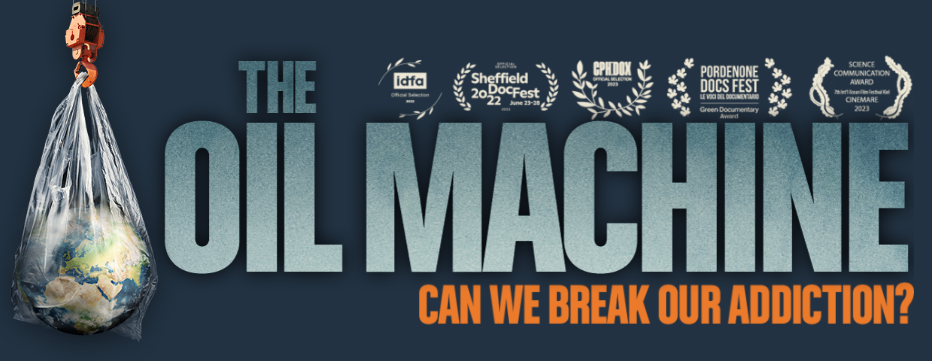
OUR FOSSIL FOOLISHNESS: Rising up against the tide of conformity, this film denounces the insanity of our oil-addiction
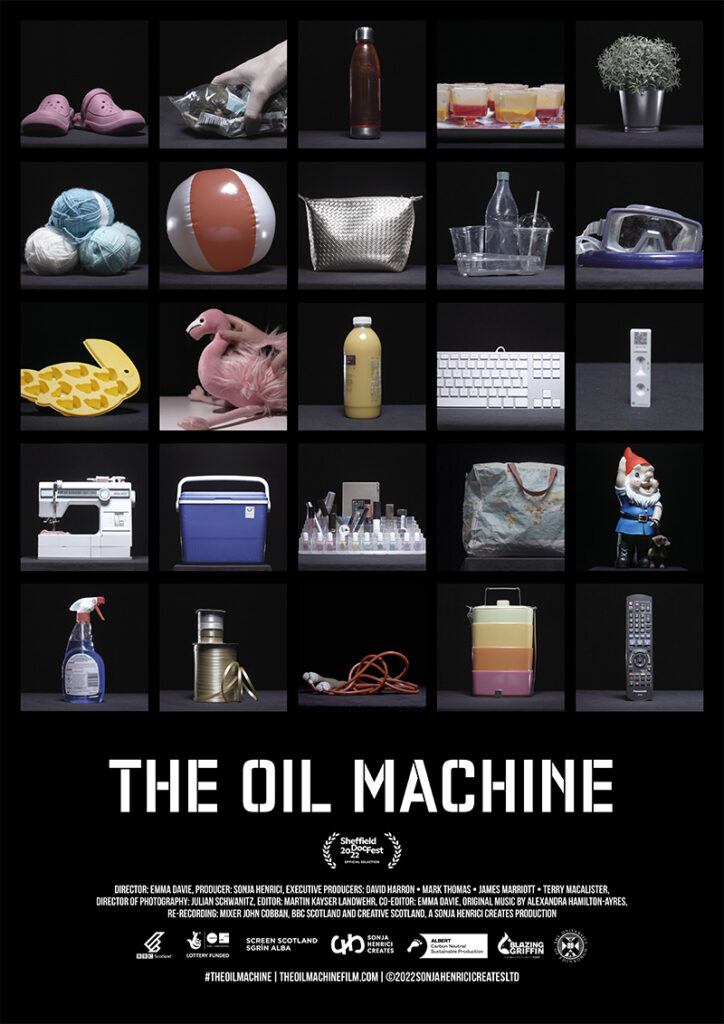
OUR FOSSIL FOOLISHNESS
The climate catastrophe we’re immersed in has become “an existential crisis for manking” (Naomi Klein) and yet products made from oil are frighteningly everywhere. We’re addicted to many of them, junkies of gadgets made from fossil fuel extraction. We’re entangled inside this Oil Machine like <Chaplin caught in the cogs of the factory in “Modern Times”>.
<Emma Davie>’s film is brilliant in throwing in our face, accompanied by a voiceover of children, a serious of stuff we frequently buy with this reminder: “this is made of oil”, “this is made of oil”. A mantra about the abyss where we’re blindly falling while “the black gold” stills flows out of the crust of the earth and out of the deepest seas, staining everything it touches even as climate disruption, extreme weather and millions of environmental-disaster-related-refugees flee from their inhospitable home lands.
It got me thinking about how important it is for us to embrace the intersectionality of struggles – which means, for instance, that is not enough to become an activist for animal liberation while continuing to own and ride in a car that burns petrol-derived greenhouse-gas-emitting fuel. You might be a vegan that daily buys vegetables and fruits wrapped in plastics. You might be a cyclist and plant-lover, and throwing namastês to all winds and flowers, and yet you might also go around town frequently catching a payed-ride in fossil-burning Uberified transport gigs. Or you might be a communist with an smartphone.
Contradictions, that’s what we’re immersed in. In peril of drowning in them. It’s pretty hard to break away from this recent addiction of ours to the “black gold”, the terrible idol of petrol. We’ve begun extracting fossil fuels after 1850 and its continued burning is insanity that will hardly be forgiven and forgotten by future generation. The fact that most of human history happened without them is proof enough that the future will be one without them if we want it to be anything else than a hellish dystopia. Fossil fuel burning simply doesn’t fit into any utopical map. Its a road to certain ruin and we’re taking it.
This film deals mainly with the matters concerning oil extraction the United Kingdom’s North Sea, but its main virtue lies in the lessons it has to teach everyone, every global citizen concerned with the environmental crisis and the impacts of it on future generations. Glasgow‘s and Edinburgn‘s uprisings of climate activists, school strikers, angst-ridden eco-traumatized adolescents shows the way: it isn’t time for conformity, it’s time for rebellion.
The film teaches through example that whaling vessels were for decades the main source of energy to light our lamps, that is to say: whales had to be killed like crazy, with infinite bloodshed at the seas, through the slaughter of these magnificent whales, until the time came, or better matured, and we gave it up; the analogy works like this: for millenia we have lived without fossil fuels and it’s preposterous to suppose we can’t give it up. We must.
The yongsters in Scotland, on the fringes of the COP and getting beaten and arrested by the cops, they’re the ones that lead the way for a future that’s worth living. Acting out of a sense of urgency, grounded in abnormality, suffering from a wide range of “eco-anxiety” psychoemotional conditions, “Greta’s Generation” is rising up – as the sea levels simultaneoulsy keep on rising.
They strike, they protest, they blog, they instamagramatize their práxis, they want sabotage of the fossil foolishness industry to be brought down from their pedestals. They have that teenage angst that is lacking in most of the conformists, the volunteered-blindness types, the accomplices of our derangement, the obedient consumers of capitalism’s profitable apocalypse.
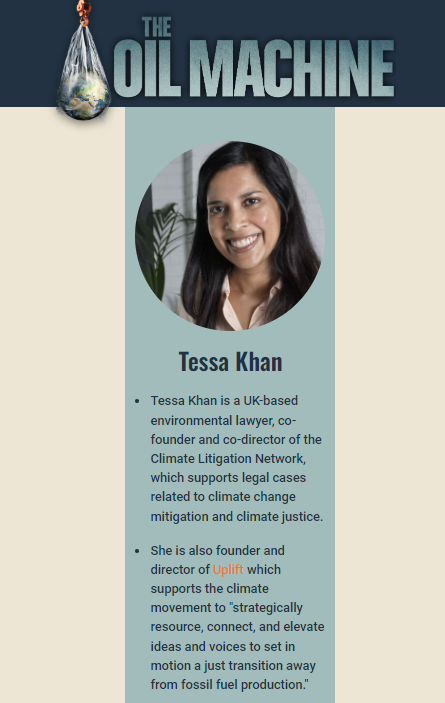
In one of the greatest scenes in these awesome documentary by Emma Davie, Tessa Khan reminds us that Bangladesh is responsible for almost nothing of greenhouse house gas emissions currently damning our atmosphere to catastrophic warming. And yet it suffers that great injustice: it’s one of the countries on Earth most badly hit by the on-going and yet-to-worsen climate crisis. The Bangladeshi people done almost nothing to cause the catastrophe and yet they suffer very heavily its consequences. The Banglaseshi will not be destroyed by the hurricanes of the Anthropocene, exactly, because it’s not “humankind” (as a whole) that produced this mega-storm, but industrial capitalism and its the ideology of Progress in this pathologial encarnation in what Andreas Malm has called Fossil Capital. Bangladesh must drown: it’s the decree of the cruel Mammon of the Capitalocene.
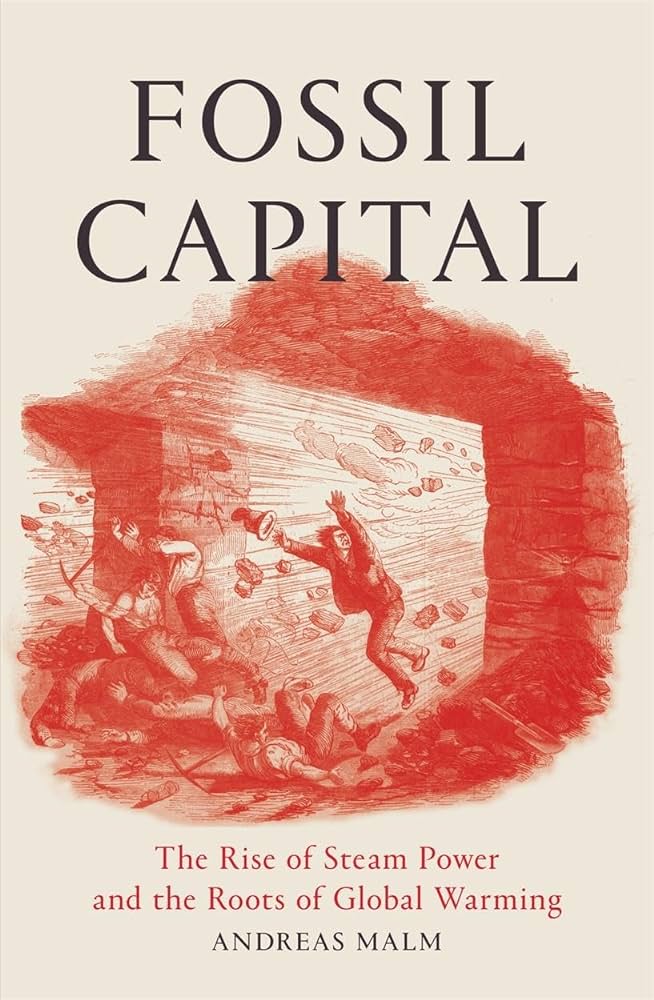
I’ll meet ya on the frontlines of the struggle for a liveable planet… we’ll meet where people are figuring out how to blow up pipelines, where movements are dismantling the oil machinery, where folks are dismantling factory farms, and where artists take their guitars and drums and voices do streets shouting out: THERE’S NO MUSIC ON A DEAD PLANET! Neither there is a Planet B. And who would want to live in a de-musified silent wasteland such as that which business is usual is so busy producing?
Eduardo Carli de Moraes
Rotterdam / Amsterdam
Outubro de 2023
See at @affrfilmfestival
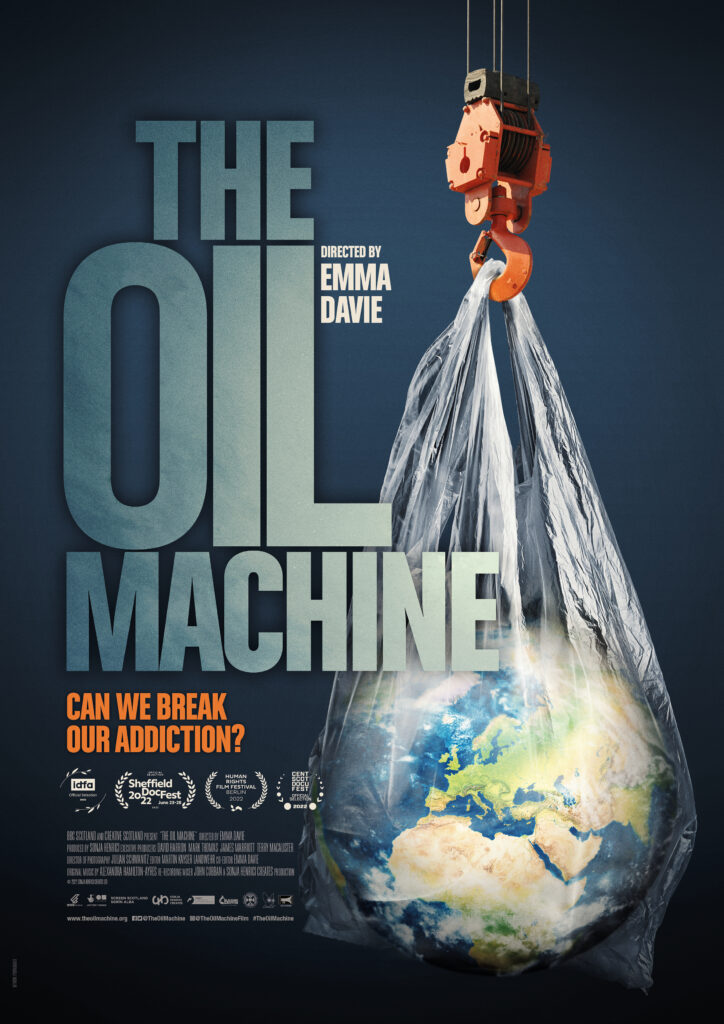
SITE OFICIAL: THE OIL MACHINE “Oil has been an invisible machine at the core of our economy and society. It now faces an uncertain future as activists and investors demand change. Is this the end of oil?
By highlighting the complexities of how oil is embedded in our society – from high finance to cheap consumer goods – THE OIL MACHINE brings together a wide range of voices from oil company executives, economists, young activists, workers, scientists, and pension fund managers. It considers how this machine can be tamed, dismantled, or repurposed.
We have five to ten years to control our oil addiction, and yet the licensing of new oil fields continues in direct contradiction with the Paris Climate Agreement. This documentary looks at how the drama of global climate action is playing out in the fight over North Sea oil.
Oil companies are convinced that they can continue to keep drilling while keeping to Net Zero ambitions through adopting new technologies, such as carbon capture. But climate scientists are deeply sceptical of the Net Zero concept and the time it would take for these technologies to be effective.
The film reveals the hidden infrastructure of oil from the offshore rigs and the buried pipelines to its flow through the stock markets of London. As the North Sea industry struggles to meet the need to cut carbon emissions, oil workers see their livelihoods under threat, and investors seek to protect their assets. Meanwhile a younger generation of climate activists are catalysed by the signs of impending chaos, and the very real threat of global sea level rises. THE OIL MACHINE explores the complexities of transitioning away from oil and gas as a society and considers how quickly we can do it.”
Directed by Emma Davie
https://www.theoilmachine.org/

Link para esta página: https://acasadevidro.com/our-fossil-foolishness/
Tradução em português em breve
Publicado em: 09/10/23
De autoria: Eduardo Carli de Moraes
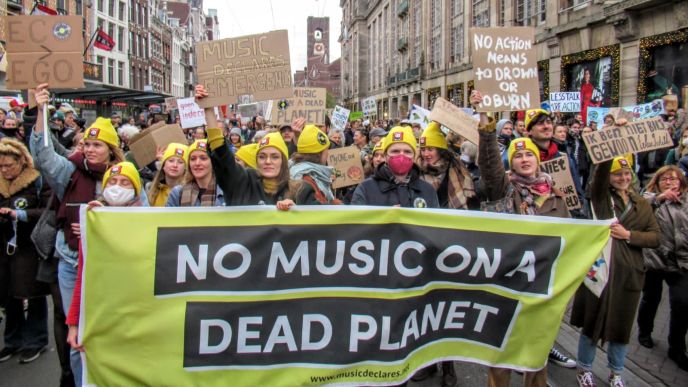

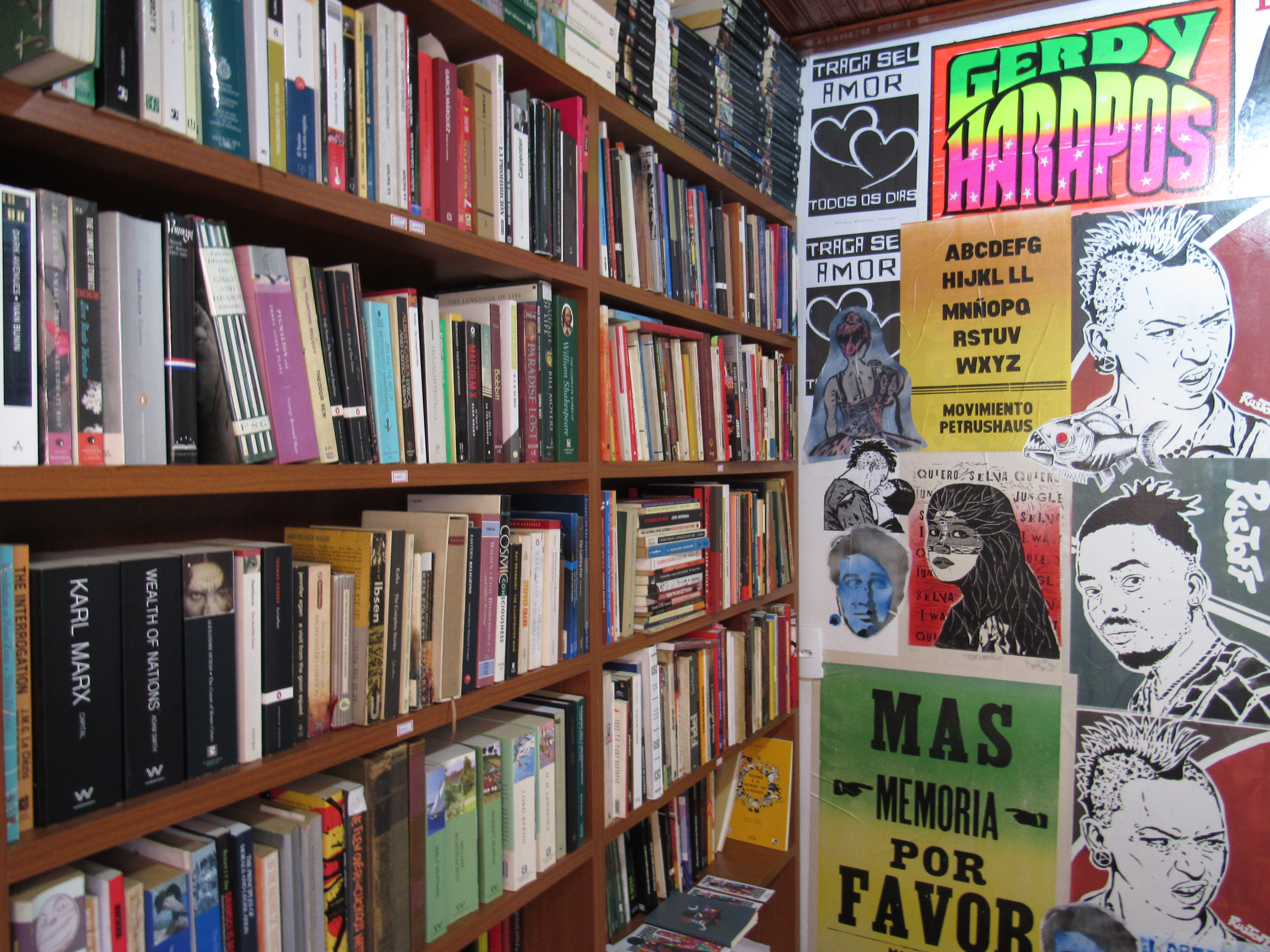
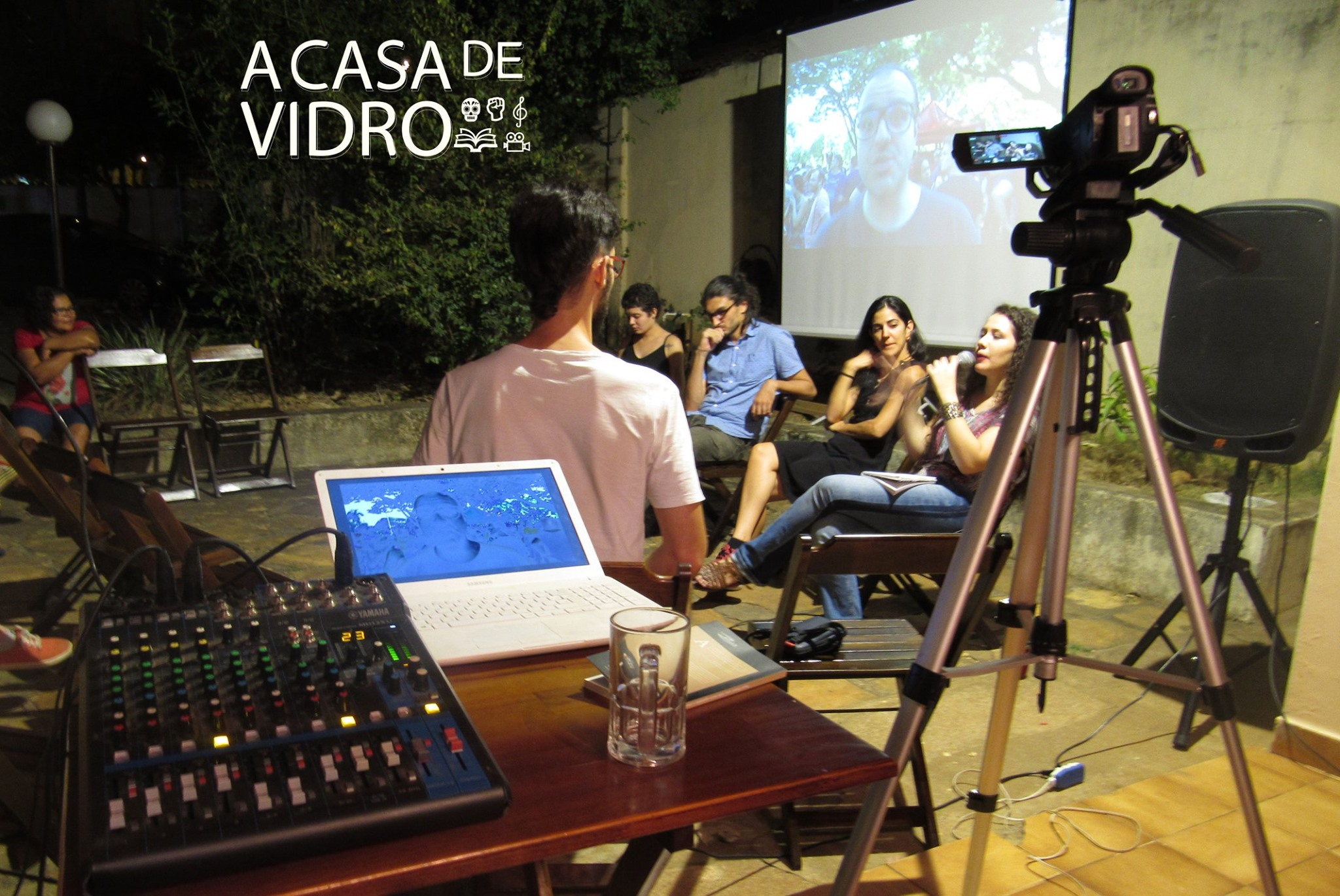


1 comentário